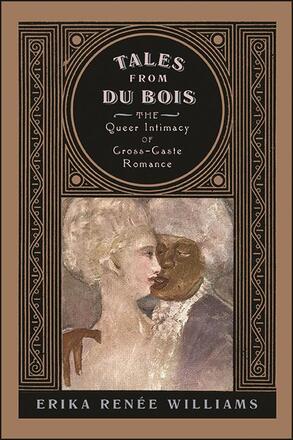
Tales from Du Bois
The Queer Intimacy of Cross-Caste Romance
Alternative formats available from:
Offers a new framework for understanding Du Bois's poetics and politics, including the concept of double consciousness, by tracing the trope of the cross-caste romance across his fiction.
Description
Tales from Du Bois brings together critical race theory, queer studies, philosophy, and genre theory to offer an illuminating new comprehensive study of W. E. B. Du Bois's fiction from 1903–1928. Erika Renée Williams begins by revisiting Du Bois's tale of being rebuffed by a white female classmate in The Souls of Black Folk, identifying it as a failure of what she calls "cross-caste romance"—a sentimental, conjugal, or erotic relation projected across lines of cultural difference. In Du Bois's text, this failure figures as the cause of double consciousness, the experience of looking at oneself through the eyes of others. Far from being unique to Souls, the trope of cross-caste romance, Williams argues, structures much of Du Bois's literary oeuvre. With it, Du Bois queries romance's capacity to ground nationalism, on the one hand, and to foment queer forms of Afro-Diasporic reclamation and kinship, on the other. Beautifully written and deftly argued, Tales from Du Bois analyzes familiar works like Souls and Dark Princess alongside neglected short fiction to make a case for the value of Du Bois's literary writing and its centrality to his thought more broadly.
Erika Renée Williams is Associate Professor of English and Africana Studies at the University of Connecticut.
Reviews
"Well researched and clearly written, this volume provides a new perspective on Du Bois, calling attention to his less-known writing … Williams carefully documents the contexts and sources of the critical discourse surrounding her approach, making this excellent book a reasonable introduction to Du Bois." — CHOICE
"The insights this book offers are sometimes startling but also so convincing that one wonders how earlier scholars had not seen them." — Koritha Mitchell, author of From Slave Cabins to the White House: Homemade Citizenship in African American Culture
"Williams's archive and interventions are wide-ranging and far-reaching as she nimbly carries us from queer of color critique to medieval and African folklore to affect theory to Enlightenment formulations that braid aesthetics, morality, and reason. Still, it is not enough to say that this study of double consciousness and its enframement in cross-caste romance will be important to ongoing conversations across multiple disciplines. Rather, Williams invites a re-thinking of the key concepts that moor Black Studies." — Nicole A. Waligora-Davis, author of Sanctuary: African Americans and Empire